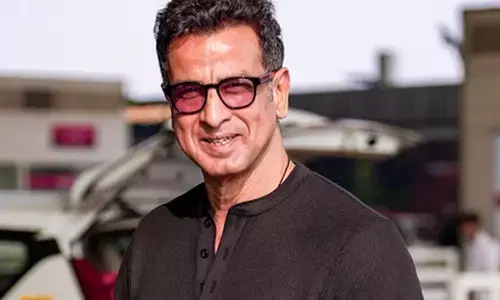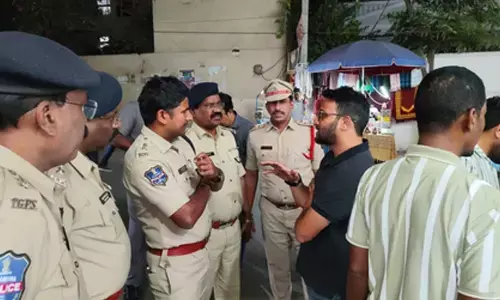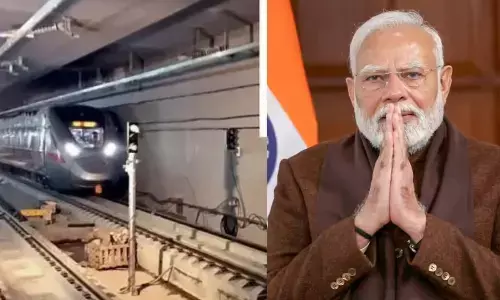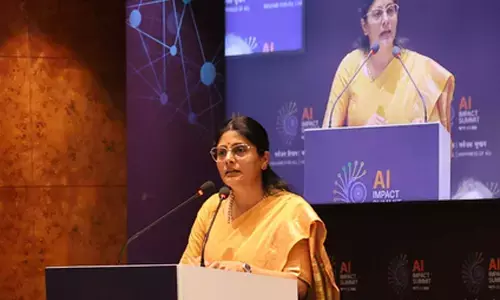Wake up to India’s growing cancer burden

Representational image
This news is not to be sniffed at. Decades of neglect by governments and public have led to a cancerous growth in its literal sense
This news is not to be sniffed at. Decades of neglect by governments and public have led to a cancerous growth in its literal sense. As the nation stepped into 2024 with new hopes, a bitter truth came to light, that four years ago, India carried the second-highest cancer burden in Asia in 2019, recording 9.3 lakh cancer deaths and 12 lakh cancer cases. The Lancet, the highest-impact academic journal in the world, has reported that China was far ahead with 48 lakh new cases and 27 lakh deaths, while Japan was just behind India with 9 lakh new cases and 4.4 lakh deaths.
The cancer burden was found to have decreased in the case of younger groups, and grown among the old groups. It is observed that tracheal, bronchus and lung (TBL) cancer emerged as the predominant cancer across Asia. Cervical cancer ranked high among women, highlighting the importance of the human papillomavirus (HPV) vaccine in preventing this type of cancer. India has cleared three HPV vaccines but is yet to introduce them into the national immunisation programme, The Lancet had said earlier. Smoking, smokeless tobacco (khaini, gutka, betel quid and pan masala) and alcohol consumption and, even, ambient particulate matter pollution are found to be dominant risk factors for cancer across Asia.
What learnings should India draw from the study? Cancer has, indeed, become a significant public health threat. As researchers pleaded for, there is an urgent need for policy attention and support to cancer awareness, preventive measures, affordable early-stage detection, and cost-effective therapeutics. The World Health Organisation (WHO) estimated cancer cases in India in 2022 to be around 14.61 lakh. It gave a stark warning that in India, one in nine people are likely to develop cancer in his/her lifetime.
India does have policies and programmes. The Modi government has set up over 700 District NCD (non-communicable diseases) Clinics, 326 District Day Care Centres, and 6,110 Community Health Center NCD Clinics. Tertiary care and exclusive cancer care centres are being facilitated. It is heartening that Department of Atomic Energy is working with private sector to minimise side-effects of radiotherapy. Centre’s Pradhan Mantri Jan Arogya Yojana (PMJAY) provides a health insurance of Rs 5 lakh per family per year for secondary or tertiary care hospitalization, covering drugs and diagnostic services. However, there is a need to bring down costs of cancer care. A case in point. In 2023, India saw its first quadrivalent Human Papillomavirus Vaccine (qHPV) from Serum Institute to help fight cervical cancer. A single dose costs around Rs 2,000.
In January 2022, Union Home Minister Amit Shah warned that use of chemical fertilisers would increase cancer cases as much as by 50 per cent – in next 15 years. Sooner than that, India faces a grim healthcare future in 2030, experts have warned and urged the government to address the dual challenge of surge in Non-communicable diseases (NCDs) like diabetes, heart disease, and cancers as well as rapid spread of multi-drug resistant bacteria in the country. As per the global adult tobacco survey (GATS), 199.4 million adults in India consume smokeless tobacco (SMT). It is no surprise India accounts for 32.9 per cent of global deaths and 28.1 per cent of new cases of lip and oral cavity cancer in 2019. We cannot be doing little about cancer and hope it will solve itself. The World Cancer Day falling on 4 February should see governments take up widespread awareness of cancers, and commit themselves to their prevention, detection, and treatment.











